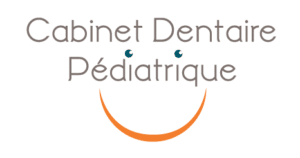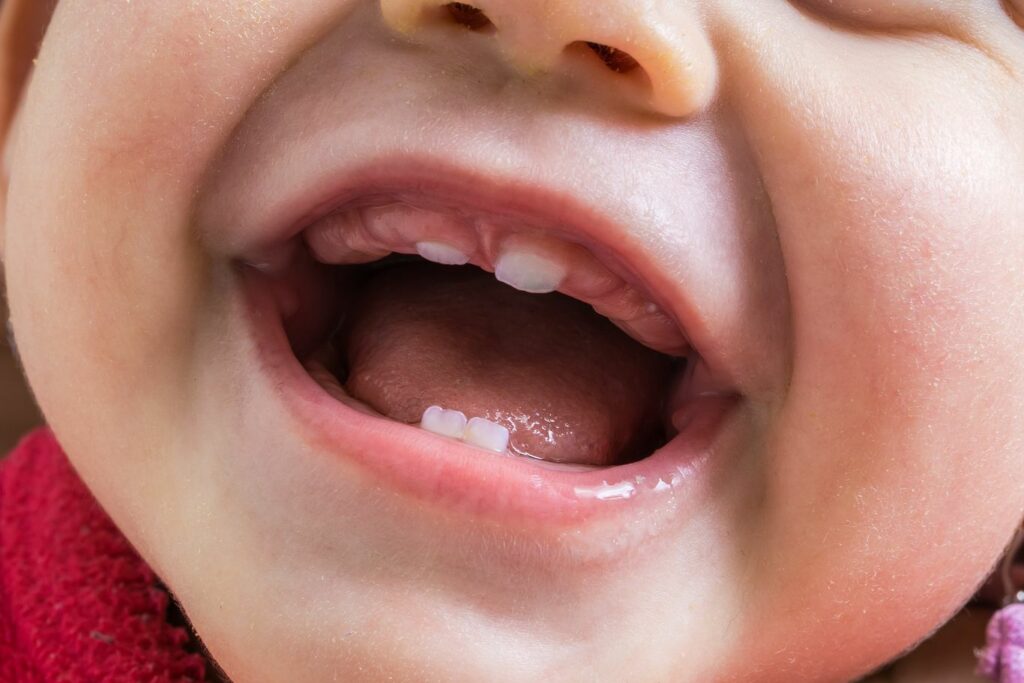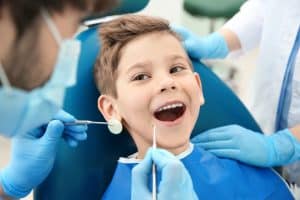Indispensable for the well-being and good health of your baby (especially in terms of nutrition and physiological development), baby teeth are temporary teeth that prepare the ground for the child's future permanent teeth. In the following lines, we explain at what age the first tooth appearseverything you need to know about the appearance of baby's teethand the average retention time of deciduous teeth.
Baby's first tooth: at what age does it come in?
The date of appearance of the teeth, as well as the order in which they emerge, is very variable from one child to another, any early or late eruption of teeth being a matter of heredity and generational characteristics of the same family.
For example, in some babies, the first teeth (lower incisors) come out at 4 or 5 months of age. But in other very healthy children, they may not appear until around 8 or 9 months. In addition, we remind you that the age at which the baby teeth come in does not constitute any kind of delay in the child's development.
The different stages in the appearance of milk teeth
If we know that the number of teeth of a child is equivalent to twenty temporary teeth from the age of 2 or 3 years, we note that the teeth appear in a well targeted chronology, in successive groups and over several months.
A child's first teeth develop months or even years before they are visible. In fact, the buds of the milk teeth start to form as early as the sixth week of pregnancy. And from the tenth week of pregnancy, the buds of the permanent teeth begin to develop.
Thereafter, the child's baby teeth appear on average in a relatively timed order:
- Between 4 and 5 months : the two lower median incisors appear,
- Between 6 and 7 months: the two upper median incisors take over,
- Between 8 and 12 months : the two upper lateral incisors pierce the gum,
- Between 9 and 12 months : the two lower lateral incisors are visible,
- Between 12 and 18 months : the first four molars of the deciduous teeth make their eruption,
- Between 18 and 24 months : the four canines are housed in their dedicated place,
- From 24 months : the four additional molars arrive, completing the child's twenty temporary teeth.
Milk teeth: until what age does a child keep them?
While a child's baby teeth are in place, his or her permanent teeth (of which there are thirty-two in total), continue to develop in the jaws. During this development, the milk teeth and their roots are of crucial importance.
It is only at the age of 6 that the first milk teeth will fall out. But during this process, it is very important to learn how to to keep the milk teeth. It is indeed the beginning of a long stage that lasts on average 6 years and during which each temporary tooth that falls out will be progressively replaced by a permanent tooth. It is important to understand that the last baby tooth falls out when the child is 12 years old, on average.
During this stage of mixed teething, it is quite possible to recognize and differentiate your child's baby teeth of his permanent teeth.
What are the symptoms of teething?
Teething can cause discomfort in children. Symptoms of teething include the appearance of bluish cysts on the gums, excessive salivation and a slight fever. Note that these symptoms never last more than 48 hours.
If no treatment is necessary to stop the itching of the gums in the child, there are however certain simple methods which proved their effectiveness to relieve it. For example, when your baby is old enough to have his first baby tooth, you can rub his gums with a clean finger.
If the child feels the need to chew, use a refrigerated teething ring or a clean washcloth dipped in cold water.
Your doctor may also prescribe acetaminophen or doliprane and Pansoral dental gel to relieve baby's dental pain.


